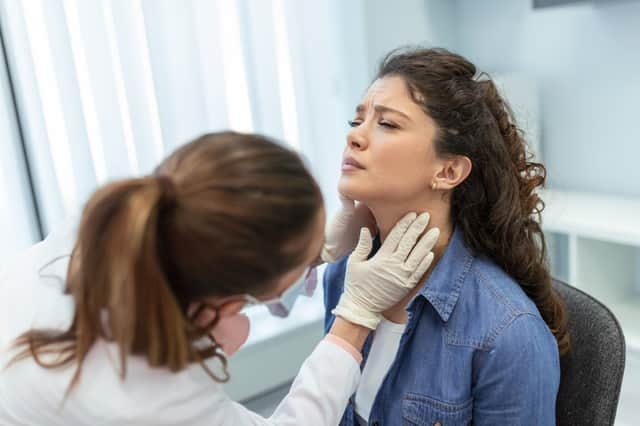JN.1: Covid-19 causes labrynthitis in teenager - what is it, symptoms and treatment


A teenager was diagnosed with labrynthitis after contracting Covid-19, it has been reported.
In a list of BMJ case reports, doctors have noted a teenager who ended up with labrynthitis - an inner ear infection - following a positive Covid-19 test. It is thought to be the first case of a child getting an ear infection as a result of Covid-19.
Advertisement
Hide AdAdvertisement
Hide AdAccording to the NHS, labrynthitis is an inner ear infection that affects your balance. Symptoms can start suddenly and take a few weeks to fully clear.
Dizziness or feeling that everything around you is spinning (vertigo)
Feeling unsteady and off balance – you might find it difficult to stay upright or walk in a straight line
Feeling or being sick
Hearing loss
Ringing in your ears (tinnitus)
Dr Jeyasakthy Saniasiaya from the University of Malaya, Malaysia, said: "We report on a boy in his early adolescence with a sudden onset of spinning sensation, imbalance and unilateral hearing loss with a positive SARS-CoV-2 test. Vestibular investigations point towards right labyrinthine hypofunction, and an audiometry test revealed right-sided severe hearing loss.
"Symptoms improved gradually with steroids and vestibular rehabilitation therapy. However, the long-term repercussions of post-Covid-19 acute labyrinthitis are unknown and must be followed up closely. To our knowledge, this is the first reported case of acute labyrinthitis secondary to Covid-19 in paediatrics."
If you have labyrinthitis or vestibular neuritis, a GP may prescribe antihistamines or motion sickness tablets for up to three days. The NHSnot take them for any longer, as they can slow down your recovery.
Labyrinthitis or vestibular neuritis is usually caused by a viral infection, such as a cold or flu, so antibiotics will not help.
Comment Guidelines
National World encourages reader discussion on our stories. User feedback, insights and back-and-forth exchanges add a rich layer of context to reporting. Please review our Community Guidelines before commenting.
